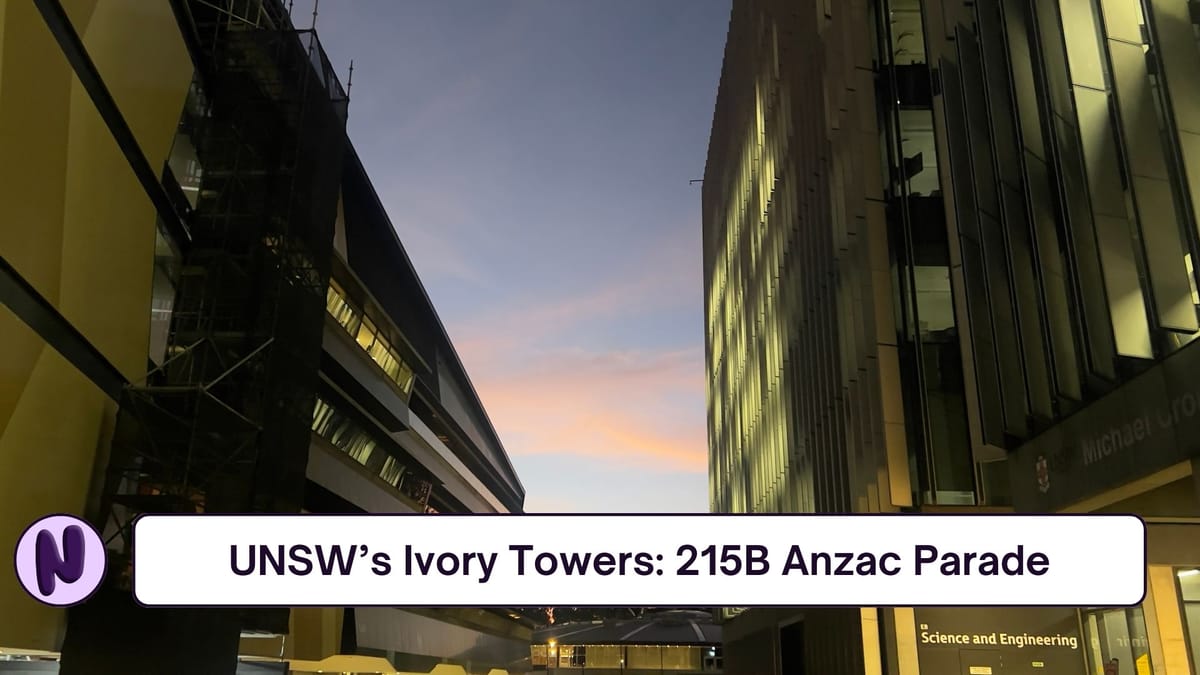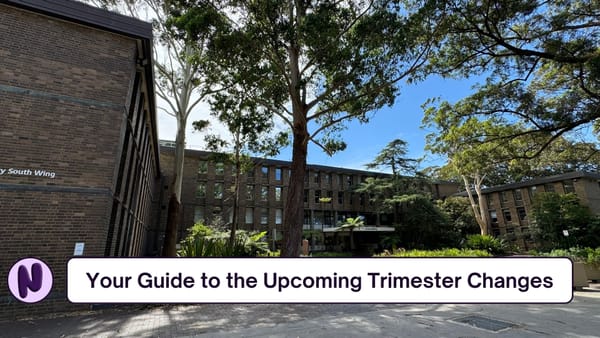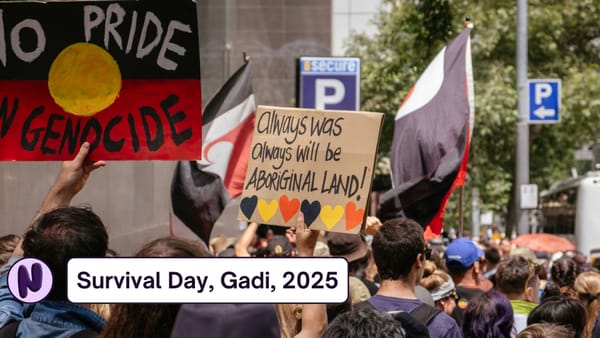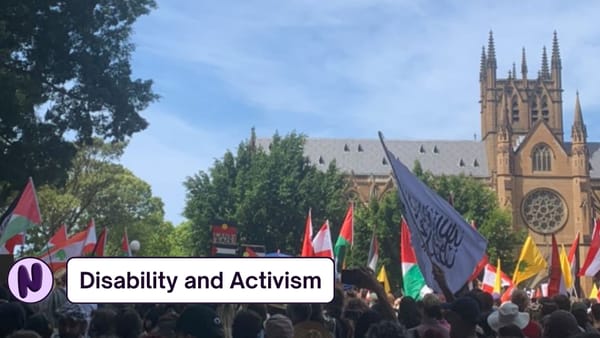UNSW's Ivory Towers: 215B Anzac Parade
Luke discusses the updates to the Anzac Parade accommodation development.

In May 2024, Noise@UNSW was approached by a local community group to run a story outlining their concerns on the Development Application (DA) of a new private student accommodation complex on Anzac Parade, in the location of the carpark next to the National Institute of Dramatic Arts (NIDA). We also highlighted the inappropriateness of handing off prime university land to a private developer, especially during the ongoing cost of living crisis.
Despite additional pushback from NIDA and Randwick City Council, each with their own concerns, the development was given approval by the Sydney Eastern City Planning Panel (SECPP) on September 17th last year.
The history of the development proposal is extensive and contains many revisions, arguments, and concessions. The initial proposal, submitted to Randwick City Council in May 2023, was for a student accommodation complex, in addition to mixed-use spaces, including “UNSW university space, retail, communal and publicly accessible open space”. The core of this project was two tower blocks of 23 and 19 stories high. Upon submission to Council, this was rejected, particularly noting that the two main tower blocks had too many negative effects associated with their height, including contrasting with the existing area, excessive overshadowing, and privacy intrusion on surrounding properties.
A revised DA was submitted to Council in May 2024, with the two main tower blocks reduced to 16 and 15 stories high respectively, resulting in the reduction of the number of beds from 1066 to 953. Despite acknowledging that there had been major changes to the design, many outlined their belief that their concerns were not addressed adequately and still opposed the development. It was at this time we published our original story on the matter, whilst the development was undergoing public comment.
In July, the CEO of NIDA, Liz Hughes, published an open letter outlining their opposition to the development in its form, and outlining the numerous ways in which NIDA would be impacted both during construction, and beyond. Among their concerns were inappropriate setbacks from Anzac Parade, which, coupled with the removal of the rear lane entrance, would require trucks delivering materials to NIDA to reverse across two lanes of traffic.
Additionally, Randwick Council’s report outlined their opposition to the project’s go-ahead. In the case where the panel decides that the development should proceed regardless, extra conditions and controls should be implemented, including some suggestions outlined by NIDA. Among these include amending the hours in which certain construction work can be carried out, and increasing the setback of the two buildings closest to NIDA, in order to mitigate the impact on their operations.
Following a deferral on the decision from the SECPP, the DA was altered a third time, largely implementing the additional changes recommended by Council, and subsequently given the go-ahead.
Given this, it is not a stretch to say that the development proposal has, and continues to be extremely controversial. For starters, the developer, Iglu is a provider of private student accommodation in Australia and is owned as a co-venture between two major international infrastructure developers. In our original piece, we outlined the inappropriateness of a private developer leasing prime university land to build expensive for-profit student accommodation, especially during the ongoing cost of living crisis.
Of note is that the land the development will be constructed on is Crown Land, being land formally owned by the NSW State Government. This being the case, the mayor of Randwick City Council, Philippa Veitch, told the Sydney Morning Herald, that the land should be reserved for “public and affordable residential housing”. Instead, the land was leased to Iglu on a 99-year lease.
Compared to similar private student accommodation blocks in Sydney, a standard 1 bedroom studio apartment within walking distance to campus currently goes for around $750 per week. On top of study commitments, it is clear that this will not be within reach of a good portion of students, and can scarcely be called “affordable housing”. As such, many concur that the nature of this being a private development will not be in the best interests of students.
Whilst some of the recommendations made in the letter from Liz Hughes have been adopted into the most recent DA approval, namely the ones also outlined by Council, NIDA still has major concerns that the construction will negatively impact the institution, and is calling for compensation as they believe the development will significantly reduce their operation during this time, with projected losses of $11.4 million in the first year alone.
They also do not believe they had adequate time to respond to their concerns about the development, claiming that the development was seemingly rushed through or bypassed the usual approvals process. Whilst a consultation meeting organised by local community groups and NIDA to hear their concerns was attended by both UNSW and Iglu, the latter stated that no further revision of the DA would go ahead. NIDA also states it was “evident that UNSW signed an agreement with Iglu even before NIDA saw the plans”.
Furthermore, the UNSW Development Control Plan released in 2020 identifies that any buildings on that site should be a maximum of 20m. Arguments have been raised by both sides as to whether or not the Development Control Plan has any bearing on the development.
As things stand, the development is likely to proceed, with construction commencing sometime in the near future, and is expected to take 3-5 years.
However, as reported by the Sydney Morning Herald, both Randwick Council and NIDA are seeking legal advice on methods to revoke the approval for the development, noting that the Department of Planning advised that the only recourse was for a judicial review of the administration of the appeal.
Whilst it is daunting to deal with the bureaucratic machine, it is important to iterate that students are ultimately key stakeholders in the running of UNSW, and there are methods to oppose developments and decisions that are not aligned with the best interests of students.
Further information outlining specific issues with the development can be found on our initial article Why UNSW’s proposed accommodation block won’t benefit students available on our website, and Series 1 Episode 1 of our podcast Make Some Noise.



